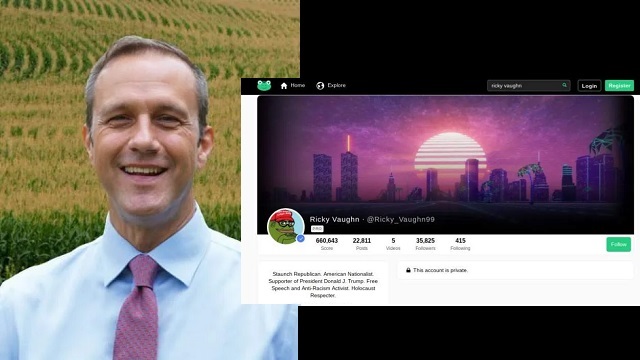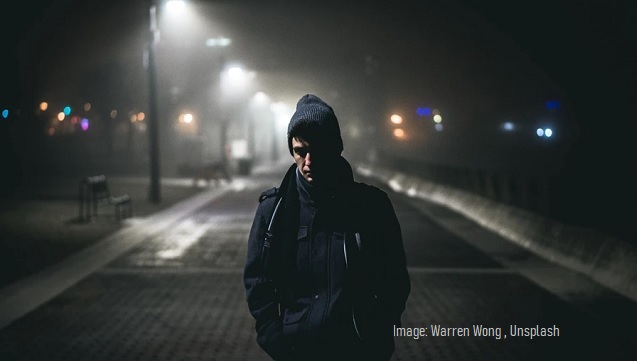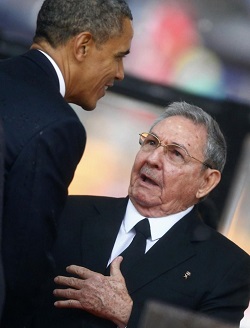POLICE STATE: Staunch Republican Douglas Mackey Sentenced To Prison For Posting Memes Mocking Hillary Clinton

We no longer have a country when a highly partisan, corrupt judicial system sends people to prison for posting jokes.
Freedom of speech is worth fighting for, worth dying for. Our once-great nation was founded on it, and it’s the hill we must die on.
Freedom of speech is the foundation of a free society. Without it, a tyrant can wreak havoc unopposed, while his opponents are silenced.
Putting up with being offended is essential in a pluralistic society in which people differ on basic truths. If a group will not bear being offended without resorting to violence, that group will rule unopposed while everyone else lives in fear, while other groups curtail their activities to appease the violent group. This results in the violent group being able to tyrannize the others.
Social Media Influencer Sentenced for Election Interference in 2016 Presidential Race
Wednesday, October 18, 2023
Office of Public Affairs
Defendant Attempted to Trick Voters into Believing They Could Vote by Text Message
A social media influencer was sentenced today to seven months in prison and fined $15,000 for his role in a conspiracy to interfere with potential voters’ right to vote in the 2016 presidential election.
According to court documents, by 2016, Douglass Mackey, aka Ricky Vaughn, had established an audience on Twitter with approximately 58,000 followers. A February 2016 analysis by the MIT Media Lab ranked Mackey as one of the most significant influencers of the then-upcoming presidential election. Between September 2016 and November 2016, Mackey conspired with other influential Twitter users and with members of private online groups to use social media platforms, including Twitter, to disseminate fraudulent messages that encouraged supporters of presidential candidate Hillary Clinton to “vote” via text message or social media, which was legally invalid.
For example, on Nov. 1, 2016, in or around the same time that Mackey was sending tweets suggesting the importance of limiting “black turnout,” Mackey tweeted an image depicting an African American woman standing in front of an “African Americans for Hillary” sign. The ad stated: “Avoid the Line. Vote from Home,” “Text ‘Hillary’ to 59925,” and “Vote for Hillary and be a part of history.” The fine print at the bottom of the deceptive image stated: “Must be 18 or older to vote. One vote per person. Must be a legal citizen of the United States. Voting by text not available in Guam, Puerto Rico, Alaska or Hawaii. Paid for by Hillary For President 2016.” The tweet included the typed hashtag “#ImWithHer,” a slogan frequently used by then-presidential candidate Hillary Clinton. On or about and before Election Day 2016, at least 4,900 unique telephone numbers texted “Hillary” or some derivative to the 59925 text number, which had been used in multiple deceptive campaign images that Mackey and his co-conspirators tweeted.
A US judge just sent a guy to jail for posting Hillary memes calling it election interference
Another US judge just gagged President Trump from speaking freely but that's not election interference
The country you grew up in no longer exists
— Jack Poso 🇺🇸 (@JackPosobiec) October 18, 2023
Isn’t it just awesome that Douglas Mackey gets convicted for election interference after posting memes but Twitter completely shuts down the NY Post’s account for posting about Hunter Biden’s laptop and nothing happens
— DC_Draino (@DC_Draino) March 31, 2023
James Clapper
AND – THIS. Elon Musk added a great point – this DOUGLASS MACKEY meme did no material damage to the election. HOWEVER, that letter of 51 INTEL LIARS changed the election definitely. Arrests? PLEASE GIVE to DOUGLAS MACKEY: https://t.co/Fo0KxVRknr pic.twitter.com/vLEjZEqBNq
— GETTRAppendix (@GettrAppendix) October 19, 2023
AUTHOR
Pamela Geller
RELATED ARTICLE: RINOS WIN: Jim Jordan Withdraws, Won’t Seek Third Vote
RELATED TWEET:
Elon Musk responds to 7-month sentencing of meme artist Douglass Mackey. pic.twitter.com/LpEbMQhrU1
— Citizen Free Press (@CitizenFreePres) October 18, 2023
EDITORS NOTE: This Geller Report is republished with permission. ©All rights reserved.







